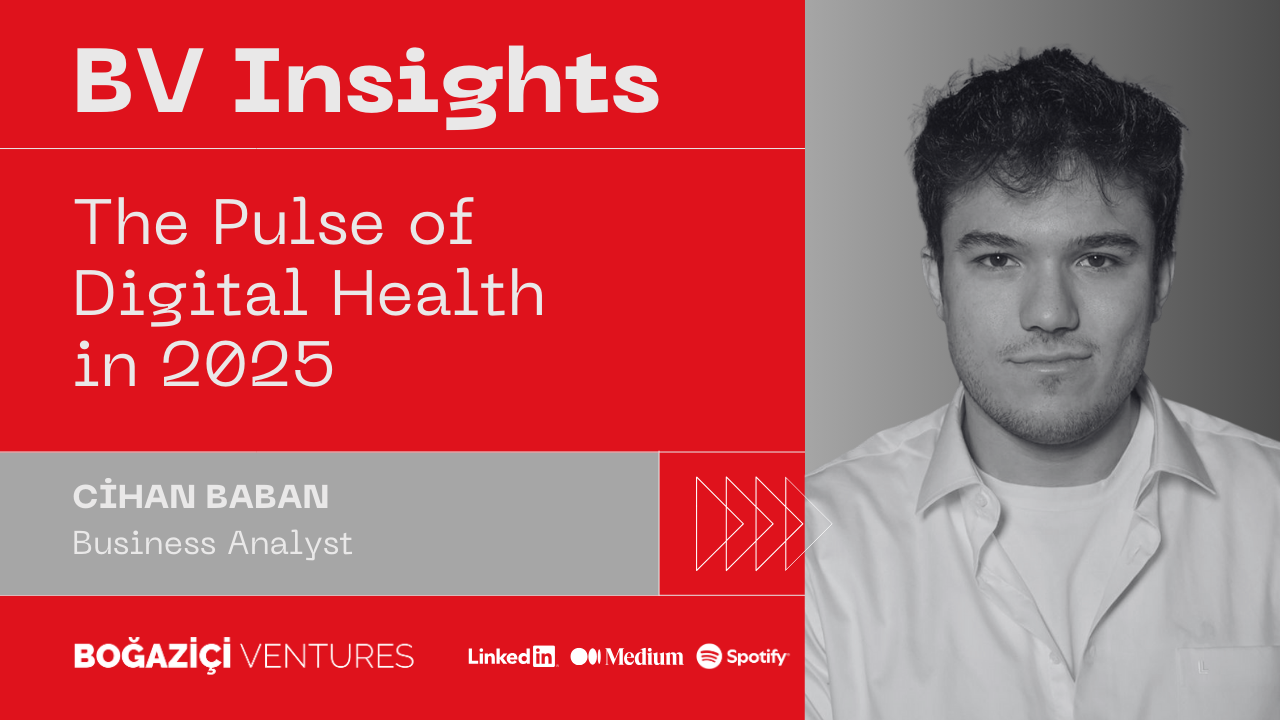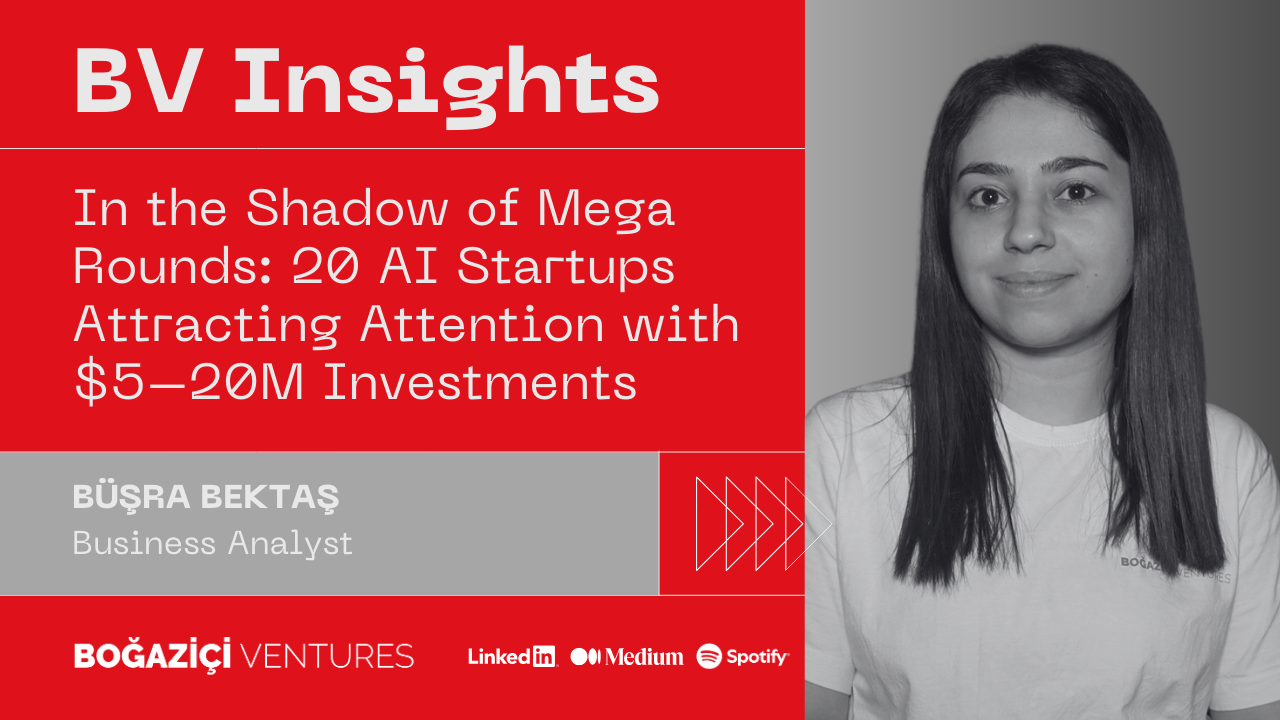The Pulse of Digital Health in 2025
Fueled by the pandemic, digital health investments now seem to have reached a new balance point in the second quarter of 2025. According to CB Insights’ State of Digital Health Q2’25 report, while the number of deals has dropped sharply, most of the funding is flowing into AI-focused, late-stage, and larger rounds.

Fueled by the pandemic, digital health investments now seem to have reached a new balance point in the second quarter of 2025. According to CB Insights’ State of Digital Health Q2’25 report, while the number of deals has dropped sharply, most of the funding is flowing into AI-focused, late-stage, and larger rounds. This trend indicates that early-stage startups are facing tighter capital access, while investors prefer fewer but larger risks.
Deal Numbers Decline, But Round Sizes Grow
In Q2 2025, investment in digital health totaled $4.4 billion — down 21% compared to the previous quarter. The number of deals was just 267, marking the lowest level in the past five years. Behind this decline lie global uncertainties, interest rate policies, and shifts in risk appetite.
At the same time, however, the average deal size increased. The global median round size rose to $6M, while in the U.S. it reached $9.3M. Notably, the average late-stage round jumped to $137M. This shows that growth capital is still accessible for entrepreneurs, but it is being distributed under more selective criteria.
AI Moves to the Core
In Q2 2025, 69% of digital health funding went directly to AI companies. These firms attracted a total of $3 billion. Investors are no longer seeing AI as a mere enabler but as the central technology driving solutions.
The majority of funding concentrated in three segments:
Clinical documentation solutions (e.g., Abridge, Commure, Nabla)
Brain-computer interfaces (e.g., Neuralink)
Infrastructure solutions such as EHR (Electronic Health Record) integration
These companies also boast CB Insights Mosaic scores above 900 — underscoring not only their ability to attract investment but also their high scalability potential.
Late-Stage Liquidity: Hinge & Omada IPOs
For the first time in a long while, the exit window reopened this quarter. Both Hinge Health ($2.6B) and Omada Health($1.1B) went public, offering partial liquidity to their investors. Both companies focus on employer-based chronic disease management and are directly integrated into insurance systems.

The 10 Largest U.S. Digital Health Companies by Funding and Performance
The table below highlights the 10 digital health companies that have raised the most venture capital as of 2025, along with their latest valuations and investor returns:
💰 1. Oscar Health – A next-generation digital health insurer with user-friendly interfaces and tech-based service infrastructure. Post-IPO, however, investor returns have fallen short of expectations.
🧬 2. Tempus – Combines AI and genomic analytics to provide doctors with personalized treatment recommendations. One of the biggest players in precision medicine, continuing on a strong growth curve.
🧑⚕️ 3. Ro (Roman) – Starting in men’s health, Ro has expanded into an integrated telehealth platform covering digital clinics, pharmacies, and doctors. Known for high patient satisfaction and operational efficiency.
🧠 4. Lyra Health – Offers corporate mental health solutions with digital matching technology and a high-quality therapist network. Its workforce stability and customer loyalty are particularly notable.
🦴 5. Hinge Health – Focuses on musculoskeletal (MSK) care, offering sensor-based physical therapy solutions and coaching programs via employers. Recently went public at a $2.6B valuation.
🏥 6. American Well (Amwell) – A telehealth pioneer that lost ground over time. Failure to sustain early-mover advantage led to valuation decline, with poor investor returns.
🚴 7. Peloton Interactive – Known for connected fitness and exercise hardware, Peloton pivoted into digital health post-pandemic. Growth has slowed in recent years, resulting in valuation decline.
🧬 8. 23andMe – Famous for consumer genetic testing, the company has seen dramatic market cap erosion post-IPO, delivering some of the lowest investor returns.
🦾 9. Jawbone – Once a leader in wearables, Jawbone lost its market position and went bankrupt. Despite nearly $1B in funding, it left investors with nothing.
⚙️ 10. Olive (CrossChx) – Tried to automate hospital operations with AI. Despite high expectations, it failed, burning through $855M in funding and collapsing to zero valuation.
For over a decade, we have been contributing to Turkey’s technology startup ecosystem with dedication, creating value with our deep knowledge and strong network. At Boğaziçi Ventures, we believe in leveraging the power of technology across multiple verticals to deliver sustainable and intelligent solutions.
We invite entrepreneurs to apply for investment meetings with Boğaziçi Ventures via [email protected]. Grow your technology startup and join our global network today!






